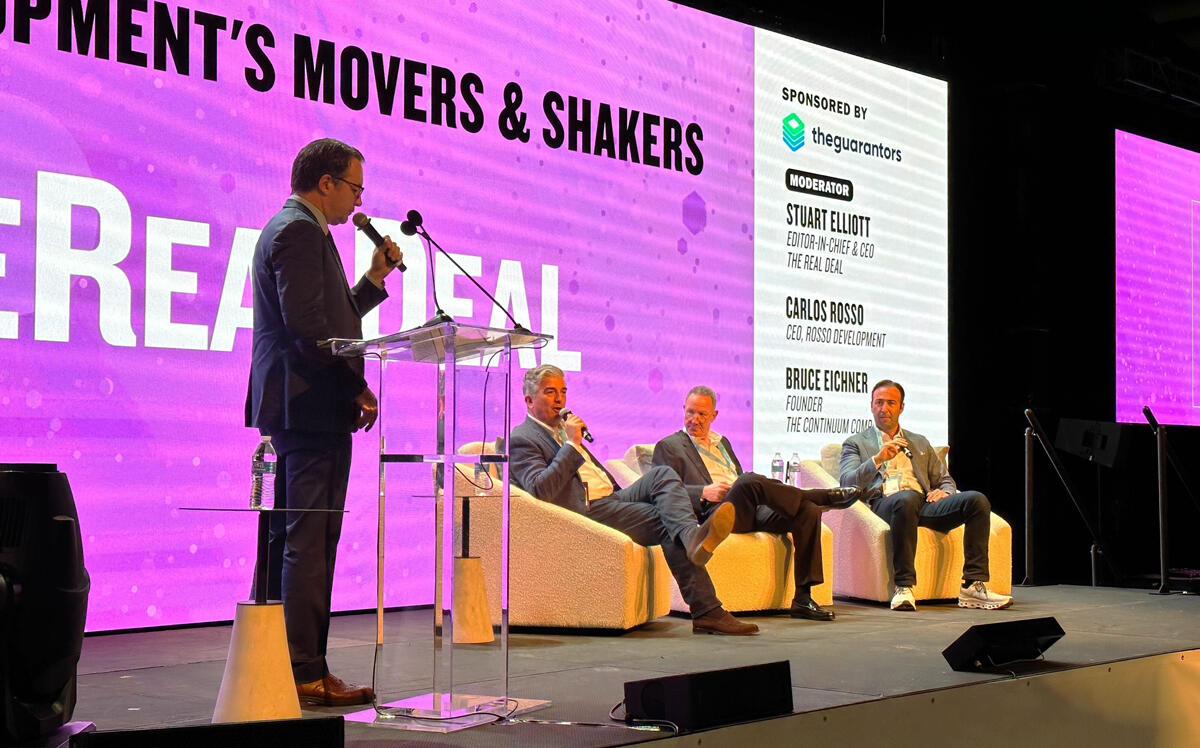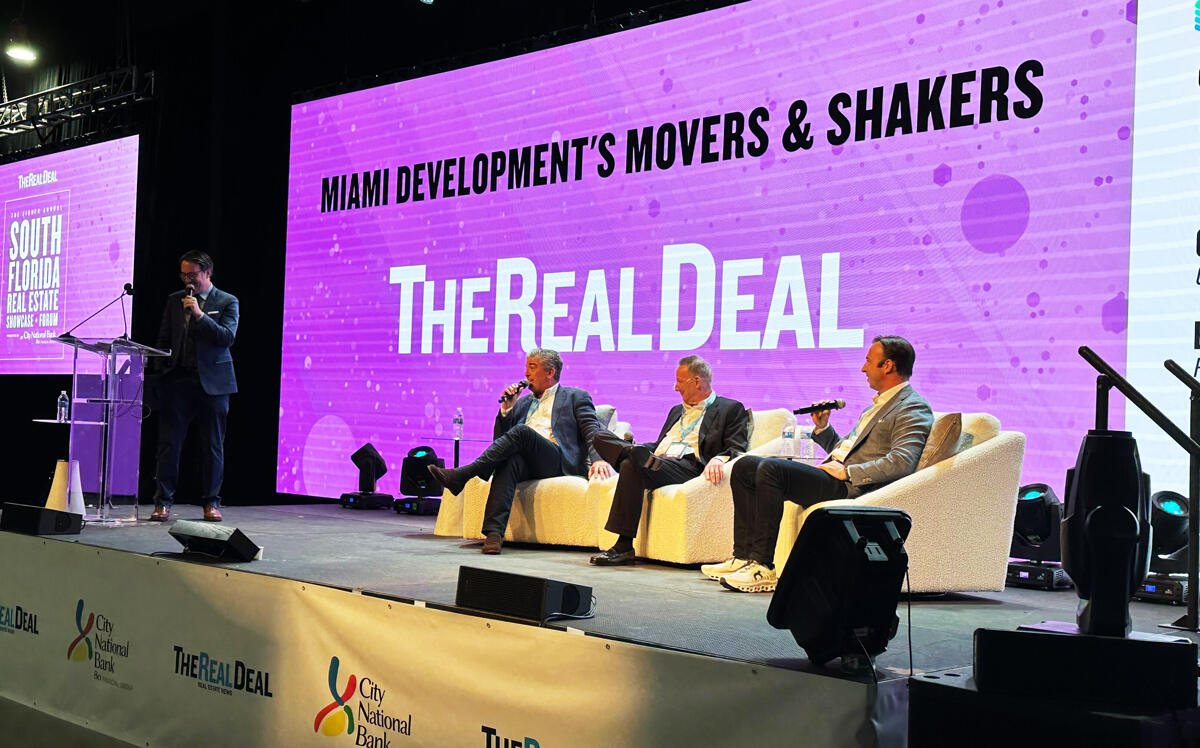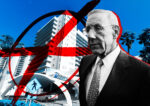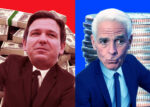Top developers didn’t deny that it’s a tough economic environment right now, but South Florida, they said, has the wind at its back.
“Given the macro-economics, I would like to refer to my friend Jon Snow to say, ‘Winter is coming,’” Arnaud Karsenti said in reference to the “Game of Thrones” character. “But fortunately, winter doesn’t really come to South Florida.”
Karsenti was among panelists at The Real Deal’s South Florida Showcase + Forum at Mana Wynwood in Miami on Thursday. He was joined on the panel by developers Ian Bruce Eichner and Carlos Rosso. TRD’s editor-in-chief Stuart Elliott moderated the discussion.

From left: TRD’s Stuart Elliott, Rosso Development’s Carlos Rosso, Continuum’s Bruce Eichner, 13th Floor’s Arnaud Karsenti
“It’s a tough environment right now. Costs are still high. Tough interest rates,” added Karsenti, managing principal of Miami-based 13th Floor Investments. But “very few areas have the amount of tailwinds that we are seeing in South Florida.”
The region won’t be spared hikes in project insurance costs, Eichner said. But on the flip side, South Florida hasn’t just hosted an influx of population, but also of businesses and companies. And that “has provided a very significant change to the landscape,” said Eichner, founder of New York-based Continuum Company.
Plus, the current environment is different from the economic climate during the Great Recession, the developers said. For one, banks have been much more responsible. And the project pipeline is more constrained than in the previous cycle, with many developers focusing on “uber-high-end” projects, and not as much on the “bread-and-butter” condos for middle-income buyers, said Rosso, who after two decades of helming the Related Group’s condo division struck out on his own in 2020.
His Rosso Development is partnering on a Standard hotel-branded condominium project in Miami’s Midtown neighborhood, and on the first condo project at the SoLé Mia development in North Miami.
And despite high borrowing costs, buyers are showing interest. “There’s no better hedge against inflation than preconstruction” condo purchases, he said.

From left: TRD’s Stuart Elliott, Rosso Development’s Carlos Rosso, Continuum’s Bruce Eichner, 13th Floor’s Arnaud Karsenti
The developers also touched on Florida’s political climate following the re-election of Gov. Ron DeSantis. Elliott asked if this was good for the state or if the continuation of Republican leadership could drive people away, or at least cool the population and company influx.
Neither, said Eichner. “I don’t think that the overall preponderance of individuals are going to be more moved or less moved by who the governor of the state of Florida is,” he said. “I think they are moved by things that resonate with people, which are the real issues.”
That includes concerns about affordability, taxes and crime, he said, adding that much of the new residential base is coming from high-crime cities.
On the more local level, three referendums failed to pass in Miami Beach on Tuesday. One would have allowed Stephen Ross’ Related Companies to build a larger project on the site of the Deauville Hotel, and the other two would have allowed office projects near Lincoln Road.
Read more



This came as no surprise to Karsenti, who didn’t have a stake in either project. “Those don’t feel like trades for the benefit of the cities the way that you, for instance, introduce a public park or transit or workforce housing,” he said.
Karsenti, who launched a distressed fund in 2010, said he would consider doing something similar this time around.
And Rosso said he will rely on insight he gained during the last recession: “I always learned from Jorge [Pérez] to never be the most expensive guy in the world.”
